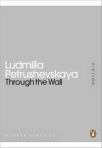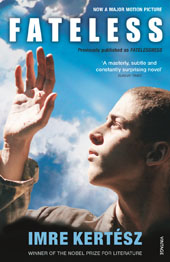I am savouring my last day off work today and feeling a little bit smug to be sat indoors out of the rain with nothing more taxing to do than mull over my favourite books of the past year. Actually, I say it’s not taxing but I started by trying to pick five books, then changed it to ten, and then bumped it up to twelve – whoops! Well that is one for every month – a perfectly good excuse in my opinion. Here they are:
How To Be a Woman, by Caitlin Moran
“…challenges all the stupid things that women are told (and tell themselves) with a big bucketful of humour…” Read full review.
Never Let Me Go, by Kazuo Ishiguro
“…an important book and one that I think is up there with some of the best dystopian novels.” Read full review.
In Love & Trouble, by Alice Walker
“…each time I picked up Alice Walker’s collection of short stories, I felt as if time was suspended and I was transported completely to heat of the Southern America… The richness and vitality of Walker’s writing makes this book an utter pleasure to read.” Read full review.
Through the Wall, by Ludmilla Petrushevskaya
“The stories sound barmy, and there is a heavy dose of the surreal, but at their heart Petrushevskaya’s tales are real human experiences of grief, love and loss.” Read full review.
Purls of Wisdom, by Jenny Lord
“…a book that I know I will refer to time and time again. I love the informal writing style because it feels just as if a friend is teaching you…” (AKA the book to blame for my knitting obsession in 2011!) Read full review.
Mr Chartwell, by Rebecca Hunt
“I struggle to think of many other books that convey what is a very serious message with so much originality and seemingly so effortlessly.” Read full review.
Mary Anne, by Daphne du Maurier
“…a book, packed with with witty lines, and a richly described period setting which creates the backdrop for the story of a fascinating protagonist based on du Maurier’s own great-great-grandmother.” Read full review.
The Mermaids Singing, by Val McDermid
“I think that I might have found a new favourite crime writer to add to my list!” Read full review.
A Grief Observed, by C.S. Lewis
“Of course, this is a sad book to read, but also so beautifully and eloquently written… In an odd way, I believe that this little book could be comforting at a time of loss, if only because of how openly the author shares his experience.” Read full review.
Fateless, by Imre Kertész
“… a novel that will stay with me, because it is unique in the way that it addresses the experience of concentration camps. The writing is deceptively simple, and peppered with imaginative ideas…” Read full review.
Journey by Moonlight, by Antal Szerb
“…has the qualities that I associate with a real classic… A rich and many-layered story.” Read full review.
Before I go to Sleep, by S.J. Watson
“…smartly plotted, written compellingly and the premise is well-executed.” Read full review.
A retrospective look at Novel Insights tells me that in 2011 I read a total of 43 books which is a whole 30% lower than last year’s count of 62. I don’t get too hung up about the number of books that I read because I don’t like to over-organise or analyse the things I do for pleasure and for this reason I don’t really make reading resolutions.
That said, I do think that my reading and blogging can be seen as a bit of a barometer of how I’m feeling. While sometimes I read less because I’ve been occupied with nice, fun stuff (including quite a lot of knitting this year!) I have felt quite busy over the past few months and it is one of my resolutions to find a better balance between work and my leisure time.
Well that’s my little bit of naval-gazing over and done with! How was your 2011? Do you have any reading resolutions? What books really stood out for you this year?

















